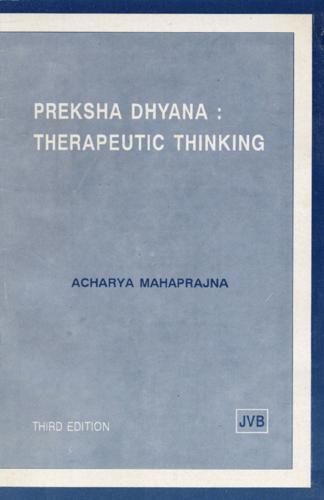The word 'mind' refers to the mental capacities or qualities of a person. It means - a group of conscious attitudes (including the will), the whole psyche—conscious and sub-conscious, power of comprehension, analysis and inquiry—a sum of mental faculties including those which are independent of the physical brain and nervous system. Man is endowed also with a reasoning mind and is thus capable of conscious reasoning and rational judgement. No other animal possesses this faculty. Mental equilibrium or balance of mind, thus, means a strong and healthy mind which is unaffected by traditional impulses, i.e., the innate capacity of the mind to perform mental tasks—to remember, to solve problems and to perceive relationship would remain unimpaired. It would also mean that the capacity for rational judgement is not affected by prejudice or bias. A person with mental equilibrium would tackle a situation with a rational, unemotional and open-minded approach, rather than a biased or a prejudiced one. He would be able to put personal interest aside in order to view a situation without preconception. Mental imbalance, on the other hand, would mean lack of fairnesss in the person's judgement
Instructions for Exercise| 1-2. | Steps nos. 1 & 2 - as in exercise no. 1. |
| 3. | Practise total relaxation (kāyotsarga) acquiring a tension-free, motionless state of the body. Maintain this motionless posture throughout the exercise. |
| 4. | Visualize that you are surrounded by bright green light and with each inhalation you are breathing in bright rose pink- coloured air. |
| 5. | Focus your attention on the Centre of Intuition and recite the following sentences, first loudly (nine times) and then mentally (nine times):
|
| 6. | Contemplate on the high value of this virtue on the following lines:
|
| 7. | As step no. 7 in exercise no.1. |
 Acharya Mahaprajna
Acharya Mahaprajna

